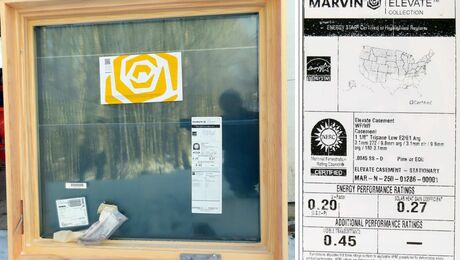Better hot water source?
We built our house 11 years ago on an island off the coast of Maine – Vermont green standards, Energy Star, passive solar, 2500sf, r60 ceilings / r30 walls, with a masonry heater as primary heat source, and, oil fired radiant (tubes in the slab) as backup. We have PV panels that just about net out every year, supply vs demand, via net metering. No natural gas on the island, and LP is expensive to have delivered.
Info on house at this writeup by Homes Across America: http://homes-across-america.org/search/details.cfm?who=144&Feature=all&action=showDetails&Query=MultiQuery
Plan was to burn vegetable oil in the Buderus boiler, but that didn’t pan out.
Given recent advances in electric heating of water for area heat and DHW, I’m wondering what options might be out there.
Heat: we rarely use the radiant system – only when we’ve been away for a week or so in winter – and the goal is for that system to keep the house above, say, 60F on super cold days; we’re happy to use the masonry heater for primary heat production.
DHW volume: two adults, with occasional 2 – 4 overnight guests.
Any suggestions appreciated!
GBA Detail Library
A collection of one thousand construction details organized by climate and house part









Replies
Bob,
First of all, you didn't tell us anything about what type of water heater you have now.
On your island, it sounds like you'll want an electric water heater. The least expensive option is an electric-resistance water heater. If you can afford the upcharge, it makes sense to invest in a heat-pump water heater. Since this type of heater uses about 1/3 as much electricity to heat water as an electric-resistance water heater, you'll have a fairly fast payback on your investment.
Note that it only makes sense to install a heat-pump water heater if you have somewhere to put it. (In your climate, the usual location would be a basement.)
Whether you choose to install an electric-resistance water heater or a heat-pump water heater, you can easily add a few PV modules to produce enough electricity to cover the annual needs of your water heater. You'll need between 0.5 kW and 2.0 kW of PV to make that happen.
Hi Martin - thanks for answering!
Current boiler is Buderus: specifically, Logano model, G115-28.
House is slab on grade, so no basement; there is, however, a utility closet off the laundry room that currently houses solar inverter, boiler, and main distribution manifold for all hot water. It's in a location in the house that typically would stay cooler (if not for the heat from the boiler). Logical location for a heat pump hot water heater? And yes, I've considered adding more PV panels, especially since I bought these a year before tax incentives kicked in. :)
Bob ... You might be a perfect candidate for a small drain back thermal hot water system. If you can do it your self, it is the lowest cost solution of all and will significantly supplement your DHW needs.
http://www.builditsolar.com/
"recent advances in electric heating of water for area heat" I don't know of any recent advances in area heat with electric heating of water, can someone explain?
I think the recent advances that are being alluded to are air to water heat pumps, I believe Daikin might make one, and there are Mitsubishi and Fujitsu products that do this as well, but they're not sold in the US.